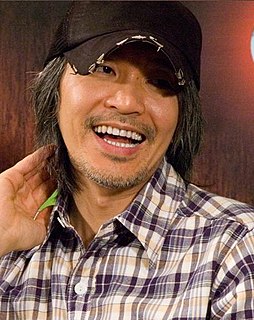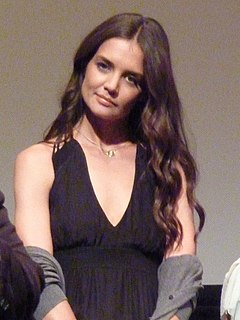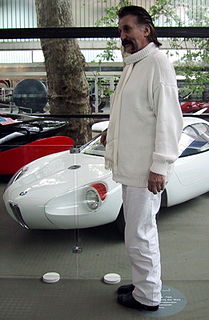A Quote by Stephen Chow
When I was an actor in some movies a long time ago, I was so curious about all the camera movements - why is the camera placed here, and why does it move like this? And why the set and the background, the color? It's a lot of questions for me to ask, because I was so interested, not only in acting, but also the whole process of filmmaking.
Related Quotes
Of course, you can never watch something like somebody else watches something like you, but nonetheless, you have to try. So I think on camera you learn a lot about how much the camera does for you, which is what is the great luxury of movie acting. Or acting whether it's TV or movies or whatever it is, that the camera's really such a gift because there's so much that it sees and does if you're willing to just be open and expose yourself and all of that. So you also learn what doesn't matter. And sometimes when you think about things, you think things matter that don't matter.
Most people assume because I'm an actor that's all I know about and care about, I'm actually a camera geek and a film geek. I grew up making short films the same time I was acting. For me, it's a motion picture, not a play. I'm just as interested in what the camera department is doing and world building through costume design and production design as I am in acting. I think all good directors do that whether they're an actor or not.
I've never changed my approach to acting. I've always felt like I've gotten better. I think that all of us can get better. I feel like, in my acting, I'm better than I was three pictures ago. I think about it. I'm a slow study. It takes me a long time to grasp the material, in order to perform it. But when I come to the set, on the first day, I know the whole movie. That's why I have to start early.
We ask ourselves all kinds of questions, such as why does a peacock have such beautiful feathers, and we may answer that he needs the feathers to impress a female peacock, but then we ask ourselves, and why is there a peacock? And then we ask, why is there anything living? And then we ask, why is there anything at all? And if you tell some advocate of scientism that the answer is a secret, he will go white hot and write a book. But it is a secret. And the experience of living with the secret and thinking about it is in itself a kind of faith.
Whenever I'm giving talks, I always ask people to think of the most obscure questions because I enjoy those the most. I always get the same questions: Why does Pickwick say "plock" and will there be a movie? I like the really obscure questions because there's so much in the books. There are tons and tons of references and I like when people get the little ones and ask me about them. It's good for the audience [and also] they realize there's more there.
Why does one want to walk wings? Why force one's body from a plane to make a parachute jump? Why should man want to fly at all? People often ask these questions. But what civilization was not founded on adventure, and how long could one exist without it? Some answer the attainment of knowledge. Some say wealth, or power, is sufficient cause. I believe the risks I take are justified y the sheer love of the life I lead.
I wanted to know why people follow rules blindly, or why girls had to act a certain way and boys didn't. Why could boys ask girls out and girls not ask guys out? Why did girls have to shave their legs and guys didn't? Why did society, like, set everything up the way they did? My whole adolescence was full of unanswered whys. Because they never got answered, I just kept lighting fires everywhere - metaphorically speaking.
I learned to ask myself questions like: Why is something made the way it is? Why does a motorcar look like it does? Is it right or wrong? What is an airplane? Why is it shaped like that? Then, later, I became a diver and studied subaquatic life and the streamlining of sharks and manta rays. Any fish is superior to the shapes we humans have invented - and unchanged for 250 million years, imagine!
The book Forest Dark wants to provoke questions about what is reality and why are we so given to believe that reality is firm and unbendable. There's a whole host of questions that the book is asking about that. Why do we believe that the world is only one way and as we see it? Why are we not open to the ways in which it might be otherwise.
Curiosity is a key building block. The more curious you are, the more creativity you will unleash. A great way to do that is to ask the three "magic questions" again and again... those questions are simply, "Why", "What if?", and "Why not?". Asking these questions constantly focused you on the possibilities and away from how things are at the moment.




































